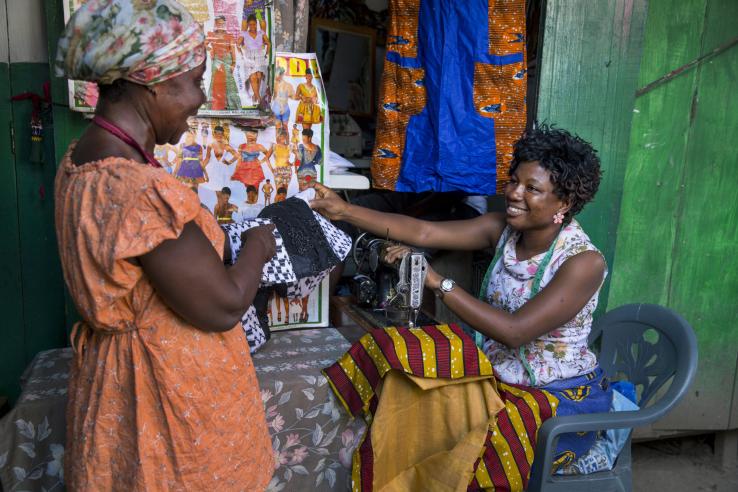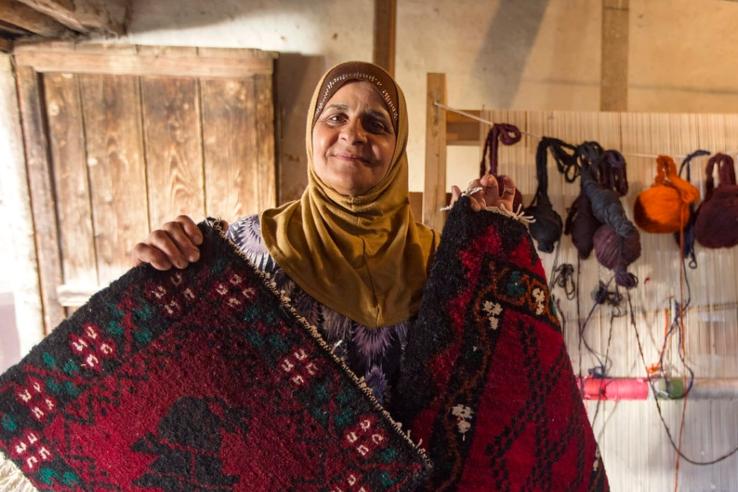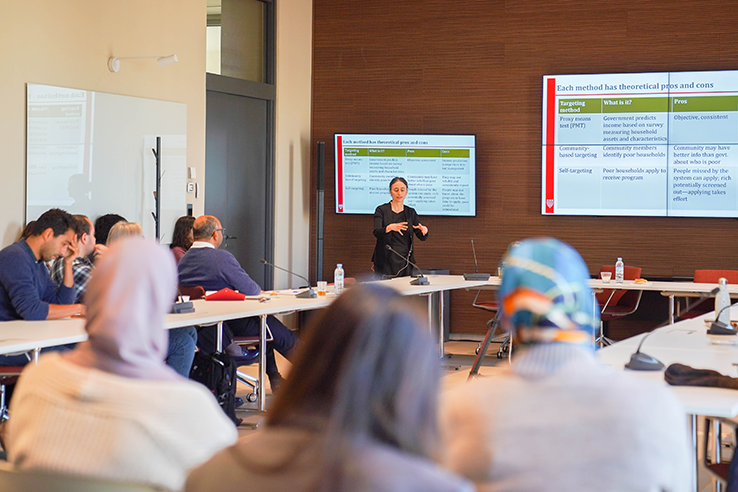Displaying 5986 - 6000 of 8505
Person
Person
Person
Person
Blog
High-quality early childhood education is essential. Randomized evaluations show that simple, low-cost activities, like reading, singing, and playing, can boost children’s cognitive, language, social, and motor skills. How can we deliver high-quality preschool education at scale?
Resource
Layout Page
J-PAL courses help implementers, policymakers, and researchers become better users and producers of evidence and equip learners with skills in impact evaluation and economics.
Evaluation
Researchers investigated the role of online networking groups (via WhatsApp) and free legal aid on improving business innovation, practices, sales, and profits among growth-oriented women-owned firms in Ghana. They found that online networking groups meaningfully encouraged business innovation, improved participants’ business practices, and boosted firm profits.
Evaluation
In Pakistan, researchers are evaluating the impact of using mobile phones to directly connect politicians with voters and give voters the opportunity to provide real-time feedback to their elected representatives.
Event
In partnership with the Meem Foundation, J-PAL MENA is launching an evidence-driven incubator program to support organizations in Egypt designing innovative solutions to advance women’s empowerment. Selected partners will receive funding, technical support, and hands-on guidance to pilot and...
Event
The MENA-Community of Practice (M-CoP) aspires to establish a culture of evidence-based policy in MENA's education sector. This goal involves: Embedding evidence in policy processes Catalyzing continuous learning and improvement Empowering stakeholders
Blog
In October 2025, Cape Town hosted the CGIAR Gender in Food, Land, and Water Systems Conference, bringing together researchers, policymakers, and donors to chart actions for closing gender gaps in agriculture. J-PAL staff attended and presented in one of the key plenaries over the three days.
Resource
Basic page
The Morocco Innovation and Evaluation Lab aims to foster development in Morocco by ensuring that policy is informed by rigorous scientific evidence and research is translated into action.
Resource
Layout Page
Evaluation
By the time they reach primary school, disadvantaged children often lag behind their more advantaged peers in the skills and concepts of formal math. To address this issue, researchers examined the impact of math games, played in preschools and exercising early emerging, universal and intuitive numerical and spatial abilities, on children’s learning of school math in Delhi, India. They found that the games led to long-term increases in children’s intuitive math abilities. The games also bolstered children’s mastery of the spatial and numerical language used in the preschools, but they did not enhance children’s subsequent learning of primary school mathematics.








